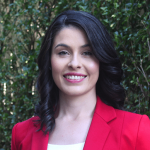
Dr Lauren McLellan
‘Getting ready for implementation: Investigating the optimal amount of therapist guidance for online treatments for Australian children with anxiety.’
Macquarie University, NSW
Awarded 2020
“There are so many reasons that families might not want, or be able to, see a psychologist face to face, and online interventions, like Cool Kids Online, are a great alternative. But, I want to make sure that there is no compromise on the quality, so that families using online programs, can trust it will help them.”
Researcher Profile
Doctor Lauren McLellan is Director of the Centre for Emotional Health Online Treatment Programs, with expertise and special interest in understanding and effectively treating anxiety in youth. Her research aims to use technology to increase access to treatments for anxious youth, especially for those in rural and remote communities.
Her other research interests include improving outcomes of anxiety treatments by developing and evaluating novel intervention or assessment methods to identify youth that don’t respond as well as others to standard treatments. Lauren is also a clinical psychologist and lectures on the Masters of Clinical Psychology postgraduate program at Macquarie University.
Project Summary
Anxiety disorders are common, cause significant impairment in childhood, and increase the risk for lifelong disability. Sadly, 30% of Australian children are unable to access evidence-based treatments. Online interventions for anxious children and adolescents improve access to care across Australia and are effective. Yet, current evidence suggests that frequent therapist support is required alongside these programs to obtain good clinical outcomes, increasing their cost and limiting their reach.
Recent research in adult online interventions suggests that good outcomes are possible with minimal or no therapist guidance. However, no studies have directly evaluated the need for therapist support when delivering child anxiety interventions online. For the first time, this project will compare outcomes and costs of an effective online program, Cool Kids Online, that is delivered with varying degrees of therapist support. Specifically, we will compare scheduled therapist guidance, optional (on request) therapist guidance and self-guidance (i.e. unguided) with a treatment-as-usual waitlist condition. We will also look at what factors influence outcomes in each condition.
Co-Investigators: A/Professor Blake Dear & Distinguished Professor Ron Rapee